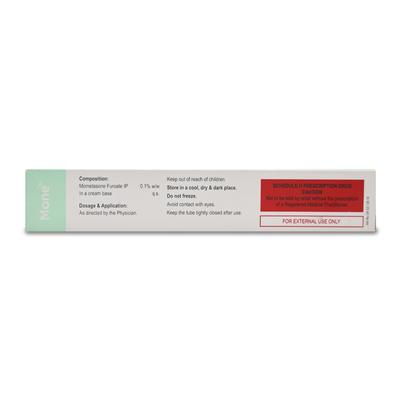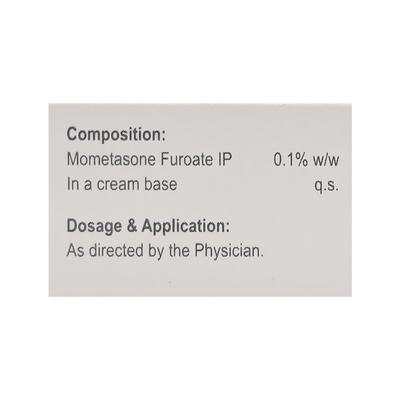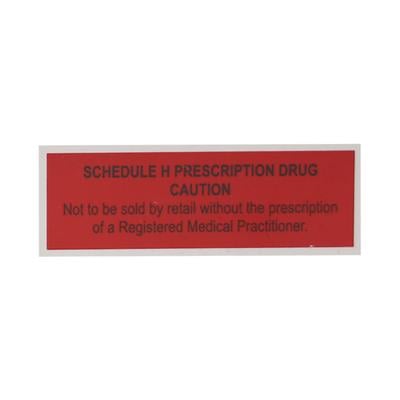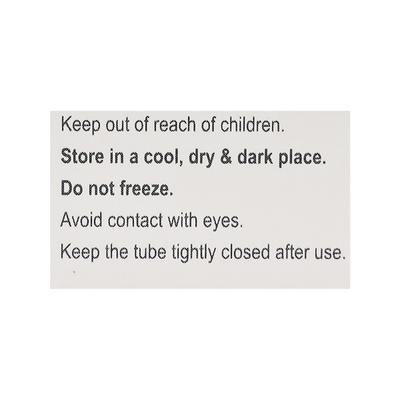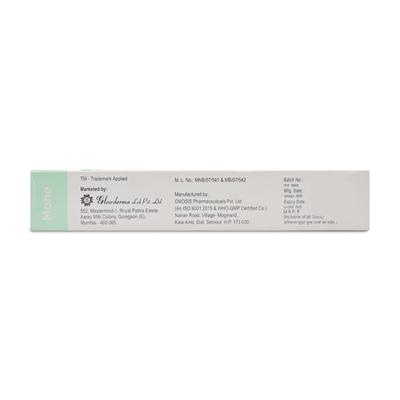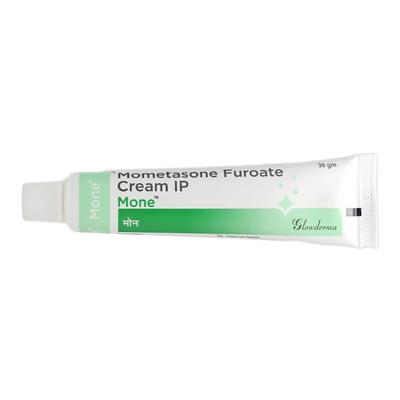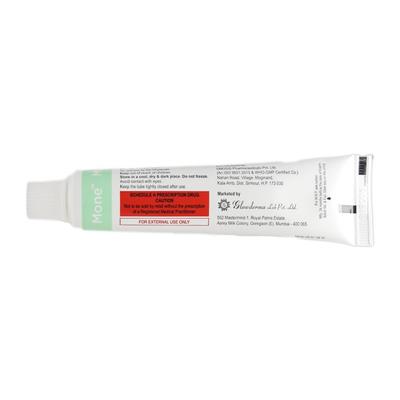

Netmeds First Membership
Quick Links
Introduction About MONE CREAM
MONE CREAM contains Mometasone which belongs to the group of medicines called Topical Corticosteroids. MONE CREAM is used in the management of inflammatory and pruritic manifestations of corticosteroid-responsive dermatoses such as psoriasis and atopic dermatitis. It is also used to manage scalp psoriasis and seborrheic dermatitis.
Psoriasis is a type of skin disease that causes skin rash with itchy, scaly patches which most commonly occurs on the knees, elbows, trunk and scalp. Atopic dermatitis is a skin condition which makes your skin red and itchy. Scalp psoriasis is a common skin disorder that makes skin raised, reddish, often scaly on the scalp which can either occur as a single patch or several patches on the scalp. Seborrheic dermatitis is a common skin condition that affects your scalp which is characterized by red, and scaly patches of skin and dandruff.
Avoid applying MONE CREAM, if you have rosacea (a skin condition affecting the face), acne (pimples), skin atrophy (thinning of the skin), dermatitis (skin inflammation) around the mouth, genital itching, viral infections such as shingles, chickenpox (viral infection), ulcerated skin, and wounds.
Before applying MONE CREAM, inform your doctor if you have kidney or liver disease. MONE CREAM should be used in pregnant women only if it is clearly necessary. It is not recommended for use in breastfeeding women. Consult your doctor before applying MONE CREAM.
The medicine is not recommended for use in children below 2 years of age. Consult your doctor before applying MONE CREAM.
The most common side effects of using MONE CREAM are mild to moderate pruritus (itchy skin), burning and stinging sensation of skin, folliculitis (a type of skin infection marked by inflamed hair follicles), dryness of skin, mild skin atrophy (thin-shiny appearing skin). Consult your doctor if any of these symptoms gets worse.
Uses Of MONE CREAM
Used to manage:
- inflammatory and pruritic manifestations of corticosteroid-responsive dermatoses, such as psoriasis and atopic dermatitis
- scalp psoriasis
- seborrhoeic dermatitis
How MONE CREAM Works
MONE CREAM works by reducing the inflammation of skin by blocking the production of a chemical messenger which is responsible for causing red, swollen and itchy skin that occurs due to an allergic reaction or irritation in the skin thereby providing relief from the symptoms of psoriasis, atopic dermatitis, scalp psoriasis and seborrhoeic dermatitis.
How to use MONE CREAM
Always apply MONE CREAM as directed by your physician. It is for external use only. On the affected area, apply a thin layer of this medicine and gently rub into the affected area of skin. Managed areas on the face need not be covered with a plaster or bandage. Avoid applying the medicine around your eyes, including eyelids.
Side Effects Of MONE CREAM
Common
- itchy skin
- burning and stinging sensation of skin
- folliculitis (a type of skin infection marked by inflamed hair follicles)
- dry skin
- acneiform eruptions (group of disorders characterized by papules and pustules resembling acne vulgaris)
- mild skin atrophy (thin-shiny appearing skin)
- telangiectasia (a condition of dilated small blood vessels on skin)
Uncommon
- skin rash
- swelling due to accumulation of fluid in hands, arms, feet, ankles and legs
- fissures (cracks in skin)
Rare
Stop applying MONE CREAM and contact your doctor immediately if you experience any of the following side effects:
- raised bumps filled with pus under your skin
- blurred vision or other visual disturbances
- skin becomes irritated or sensitive
- developed an infection on your skin
How To Manage Side Effects
Dry Skin
Try moisturizing your skin with an ointment, cream, or lotion 2 or 3 times a day, or as often as needed. Moisturizers help to keep the area moisture, so they work best on damp skin. After you bathe, pat your skin dry then apply your moisturizer. Try to avoid using skin care products and soaps that contain alcohol, fragrances, dyes, or other chemicals.
Warning & Precautions
Pregnancy
Monitoring requiredMONE CREAM should be used in pregnant women only if it is clearly necessary. Consult your doctor before applying MONE CREAM.
Breastfeeding
ContraindicatedMONE CREAM is not recommended for use in breastfeeding women. Consult your doctor before applying MONE CREAM.
Allergy
ContraindicatedDo not use MONE CREAM if you are allergic to Mometasone, or to any other ingredients of this medicine.
Use In Pediatrics
ContraindicatedMONE CREAM is not recommended for use in children below 2 years of age. Consult your doctor before applying MONE CREAM.
Use In Geriatrics
Use with CautionMONE CREAM should be used with caution in elderly patients. Consult your doctor before applying MONE CREAM.
Others
MONE CREAM is not recommended for use if you have:
- rosacea (a skin condition affecting the face)
- acne
- skin atrophy (thinning of the skin)
- dermatitis (skin inflammation) around the mouth
- genital itching
- nappy rash
- cold sores
- shingles (viral infection)
- chickenpox (viral infection)
- warts (type of skin infection caused by human papillomavirus)
- ulcerated skin
- wounds
- other skin infections such as impetigo, folliculitis, and furuncles and carbuncles
Interactions
A. Drug-Drug interactions:
Before applying MONE CREAM, inform your doctor, if you are applying or taking any of the prescription, non-prescription medicines and herbal supplements.
Overdosage:
If you or anyone else accidentally uses too much of MONE CREAM, consult your doctor immediately or visit the nearby hospital.
Synopsis
| Drug | : | Mometasone |
| Pharmacological Category | : | Topical Corticosteroids |
| Therapeutic Indication | : | Manages skin conditions |
| Dosage Forms | : | Cream, Ointment, Lotion, Nasal spray, Spray |
More Information
- Keep MONE CREAM out of reach in children
- Store MONE CREAM at room temperature
FAQs About MONE CREAM
Q: What MONE CREAM is used for?
A: MONE CREAM is used in the management of inflammatory and pruritic manifestations of corticosteroid-responsive dermatoses such as psoriasis and atopic dermatitis. It is also used to manage scalp psoriasis and seborrheic dermatitis.
Q: What happens if you suddenly stop using MONE CREAM?
A: If you have been applying MONE CREAM for a long time and your skin problem seems to have got better, you should not suddenly stop using the medicine. If you do, you may find that your skin becomes red and may notice a stinging or burning sensation. To avoid this, consult and discuss with your doctor before stopping MONE CREAM.
Q: Who should avoid applying MONE CREAM?
A: MONE CREAM is not recommended for use in patients allergic to Mometasone, and/or have conditions such as rosacea, acne, skin atrophy, dermatitis around the mouth, cold sores, shingles or chickenpox (viral infection), ulcerated skin, and wounds.
Q: What are the common side effects of MONE CREAM?
A: The most common side effects of using MONE CREAM are mild to moderate pruritus (itchy skin), burning and stinging sensation of skin, folliculitis, dryness of skin, mild skin atrophy (thin-shiny appearing skin) and temporary burning sensation on the site of application. Consult your doctor if any of these symptoms gets worse.
Q: How MONE CREAM should be applied on the site of infection?
A: It is for external use only. On the affected area, apply a thin layer of this medicine. Managed areas on the face need not be covered with a plaster or bandage. Do not apply MONE CREAM on your face beyond 5 days. Avoid applying the medicines around your eyes, including eyelids.
References
1. KD. Tripathi. Drugs Acting on Skin & Mucous Membranes. Essentials of medical pharmacology. Seventh edition. 2013. Page – 895.
2. Seanergy Dermatology Ltd. Topical Cream SNG100 for Treatment in Moderate Atopic Dermatitis Subjects. (SNG100). NIH U.S. National Library of Medicine ClinicalTrials.gov. [Revised in November 2020] [Accessed on 24th May 2022] https://clinicaltrials.gov/ct2/show/NCT04615962
3. Fabrizio Spada, Tanya M Barnes, and Kerryn A Greive. Comparative safety and efficacy of topical mometasone furoate with other topical corticosteroids. NIH National Library of Medicine, National center for biotechnology information. PMC PubMed Central. February 2018 [Accessed on 24th May 2022] https://www.ncbi.nlm.nih.gov/pmc/articles/PMC6099284/
4. Wei Xu, Yan Li, Mei Ju, Wei Lai, Xueyan Lu, Huijuan Shi, 5 Weimin Shi, 6 Heng Gu, and Linfeng Li. A Multicenter, Randomized, Double-Blind, Placebo-Controlled Study of Compound Glycyrrhizin Capsules Combined with a Topical Corticosteroid in Adults with Chronic Eczema. NIH National Library of Medicine, National center for biotechnology information. PMC PubMed Central. March 2020 [Accessed on 24th May 2022] https://www.ncbi.nlm.nih.gov/pmc/articles/PMC7149328/
5. Glenmark Pharmaceuticals s.r.o. Electronic medicines compendium (EMC). [Revised in January 2022] [Accessed on 24th May 2022] https://www.medicines.org.uk/emc/files/pil.9994.pdf
6. Salutas Pharma GmbH. Electronic medicines compendium (EMC). [Revised in January 2022] [Accessed on 24th May 2022] https://www.medicines.org.uk/emc/files/pil.9996.pdf
7. Organon (New Zealand) Limited. New Zealand Medicines and Medical devices Safety Authority (medsafe). [Revised in January 2020] [Accessed on 24th May 2022] https://www.medsafe.govt.nz/profs/Datasheet/e/Eloconcrointlot.pdf
8. Torrent Pharmaceuticals. [Revised in July 2020] [Accessed on 24th May 2022] https://www.torrentian.com/pisheet/Search.aspx












